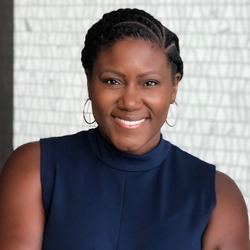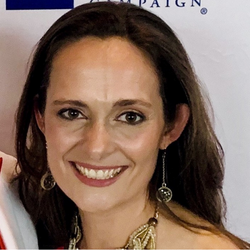
Last month our Leaders in Action had the opportunity to hear from Aisha Crumbine, a coach and facilitator who believes that better leaders work on themselves first. While our conversation covered a variety of topics, one question Aisha asked really stuck with me. She was coaching a nonprofit executive director who was struggling to keep up with an overwhelming email inbox – one that seemed to fill back up as quickly as she emptied it. Aisha asked “What story are you telling yourself when you aren’t responding to emails quickly?” After a long pause, this leader confessed that she worried that she signaled to the sender that she wasn’t on top of her work. Then we spent some time discussing the personal assumptions and biases that write such stressful stories.
It struck me how often nonprofit leaders write such stories.
What story am I telling myself about what my team expects from me?
If I don’t have an open door policy they will think I am controlling and inaccessible. If I don’t stay on Slack all day to answer questions then it’s my fault if they can’t get their work done. If I provide critical feedback about their performance they may start looking for another job.
What story am I telling myself about what my board expects from me?
If materials for board meetings aren’t perfect they will think I’m bad at my job. If I don’t respond to their emails immediately they will think I don’t value them or their service. If we remind them about their board giving expectation they might resign from the board.
What story am I telling myself about what my funders expect from me?
If we don’t show consistent growth year after year they won’t give us any more grants. If we don’t keep our administrative costs extremely low they’ll think we waste money. If I don’t write a personalized thank you note they’ll think we're ungrateful.
What story am I telling myself about what I must sacrifice for the work?
If I can just get through next week then things will get better. If my team is already overloaded then I’ll just have to pick up the slack. If I don’t work at the absolute limits of my capacity then I am actually a part of the problem.
I have heard stories like these from countless nonprofit leaders, and the messages all seem to have one theme: you need to do more, work more, strive more. And Aisha would argue that this message, the one telling us we must always be hustling, is actually the problem. As it turns out, the work – the mission – will always be there. Nonprofit leaders tackle fundamental, complex challenges that will take ages to untangle. We need leaders who are in this for the long haul, and that means developing leaders who build sustainable personal and professional lives. Leaders who let go of “more” and focus on “how.”
Maybe it’s time to write some nonfiction?
Have a frank conversation with your team about what they need versus what they want and find a place of compromise that also acknowledges what you need and what you want: If we can hold the majority of your questions for our weekly check-in, we can handle them efficiently plus we’ll all have focused time during each day to dedicate to our core responsibilities.
Let your board know that you carefully manage your time to ensure that the day-to-day needs of the organization are met and that you’d like to set up communication expectations that allow for thoughtful, time-appropriate responses. If I reserve an hour each week to respond to inquiries from board members, I find that I can give more thoughtful responses and am better able to notice any trends in questions or concerns that I can then communicate to the board president.
Approach your funders with your actual priorities and goals for the coming grant year, without assuming that they will need to see ambitious program growth or new capital campaigns to find you interesting and effective. If we spend the next grant cycle focused on strengthening our internal capacity around governance, finance and management, we’ll be in a stronger position to conduct an ambitious but feasible strategic plan.
Tell yourself that you are worthy of life outside of the mission. If I set and hold myself accountable to shutting down my computer at 5:00, the time I spend on the activities I enjoy and with the people I love will give me fresh energy and perspective to start again the next day. If I don’t respond to emails or schedule calls while I am on vacation, my team will know they have permission to do the same. If I don’t achieve this mission this year, this decade or even this lifetime, my efforts are still important and necessary and valuable.
What stories are you telling yourself? How can we help you rewrite them?
Learn more about Aisha's coaching practice at aishacrumbine.com.
About the Author

Center for Philanthropy & Nonprofit Leadership
Associate Director
Leslie C. Wang, MBA, is the associate director of the Center for Philanthropy & Nonprofit Leadership at Rice University. Ms. Wang came to Houston through Teach for America and taught fifth grade at Oates Elementary. She later received an MBA from The University of Texas at Austin, where she focused her studies on nonprofit management. She served as a program officer at Houston Endowment for close to a decade. During that time she developed a strong network among the nonprofit and philanthropic community, along with a deep understanding of the challenges and opportunities that drive the nonprofit sector. At the Center she acts as the principal instructor for the Leadership in Action Certificate program - a hands-on, workshop-based certificate series for new nonprofit leaders - and supports additional professional development opportunities in management and governance.
The Center for Philanthropy & Nonprofit Leadership provides professional development instruction and consulting for nonprofits as they strengthen their leadership, staffing, governance, finance and fundraising capacity. We offer online and in-person courses for individuals and customized engagements for nonprofit organizations. Learn more at cpnl.rice.edu.

